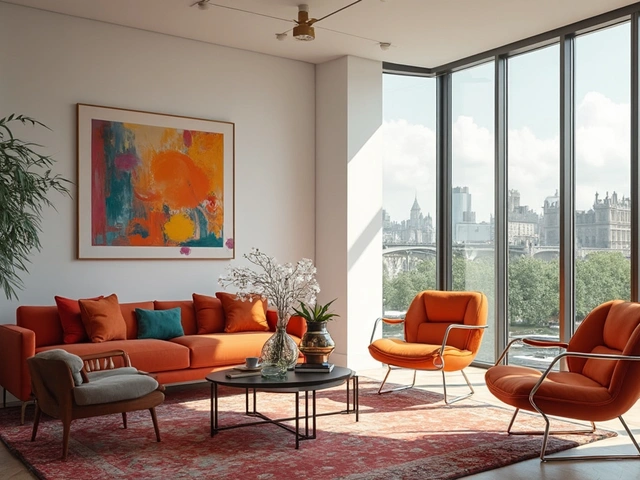Discovering the Origins of Bauhaus Style
Allow me, Theodore, to take you back to Germany, circa 1919. The world had just emerged from the ravages of World War I and the Die Staatliches Bauhaus, or simply the Bauhaus, was founded. This iconic school of design, under the helm of architect Walter Gropius, created waves in the realm of artistry, architecture, and guess what, fashion, that continue to reach our shores even today. Their fundamental principle was the marriage of form and function, an ethos that, believe me, goes far beyond just aesthetics. The Bauhaus' principles of simplicity, geometric form, and functionality resulted in a design language that was truly transformative and universal.
A Look at Bauhaus Influence in 20th Century Fashion
What? You didn't think fashion could be immune to the Bauhaus effect, did you? As a style enthusiast, you'd be fascinated to know that some of the 20th century's most revolutionary fashion movements bear distinct Bauhaus fingerprints. Designers like Issey Miyake, Yves Saint Laurent, and Pierre Cardin, who turned fashion on its head by eschewing ornamental excess for clean lines and functionality, are promptly declared Bauhaus disciples. We may not see it overtly, but the Bauhaus philosophy of "less is more" continues to dictate fashion norms.
Bauhaus - Reshaping the Contemporary Fashion Narrative
Flash forward to today. The Bauhaus influence is not merely relegated to yesteryears; it breathes in the very fabric of contemporary fashion. Yes, in the era of sharing economy, digital nomadism, and climate change awareness, the Bauhaus philosophy finds a renewed significance. Think about it: In a world striving towards minimalism, isn't the return to simple, functional, and durable fashion a nod to the Bauhaus ethos? Brands like Everlane, COS, and Patagonia, with their emphasis on form marrying functionality, are testimony to this ongoing legacy.
Bauhaus and Streetwear
Another fascinating slice of it all is streetwear, the very emblem of today's youth culture, heavily doused in Bauhaus style. Streetwear's use of bold, geometric graphics, primary colors, and emphasis on comfort while looking chic reflects Bauhaus ideals. Brands like Off-White, Adidas, and HUF worldwide are some examples. They harness the Bauhaus aesthetic to forge their unique identity in the world of streetwear. With the rise of conscious consumerism, more and more of us are choosing quality over quantity, returning once again to the Bauhaus dictum of utilitarian elegance.
Dress Like Bauhaus - 5 Practical Tips
Does the Bauhaus philosophy resonate with you enough to reflect in your wardrobes? If yes, I've got a simplified rule: Stick to basics, both in form and color. Opt for simple, geometric patterns, unfussy silhouettes, and primary colors for your outfits. Sustainability is always fashionable, so invest in quality pieces instead of disposable trends. Oh, and shoes! Remember, Bauhaus is all about comfort. So, stylish yet comfy footwear is your friend. Lastly, just like my beloved Mango (yes, my cockatoo) steals the show at any gathering with his radiant hues, don't hesitate to add a pop of color to your outfit. That too is quite Bauhausian!
Bauhaus-New Pop-Culture and Its Fashion Relevance
Pop culture and fashion have always shared an intricate dance, and the Bauhaus style is no different. Musicians from David Bowie to Kanye West, filmmakers like Tim Burton, and many others have all found inspiration in Bauhaus. This influence on pop culture inevitably trickled down to fashion. From concert merch tees to movie industry wardrobes, the Bauhaus influence can be seen in all. As it continues to gain traction, one thing is clear: the Bauhaus is not just a school of design; it's a narrative, a philosophy, a way of life that transcends generations and forms.
Never forget, fashion can be as deep, as influential, and as philosophical as any other form of art. So, when you walk down the street in your straight-cut, deconstructed khaki trench coat, know that you're not just making a sartorial statement. You're embodying an ethos, a certain Bauhausian ethos that revolutionized art, design, and fashion. And isn't that somewhat magical?





